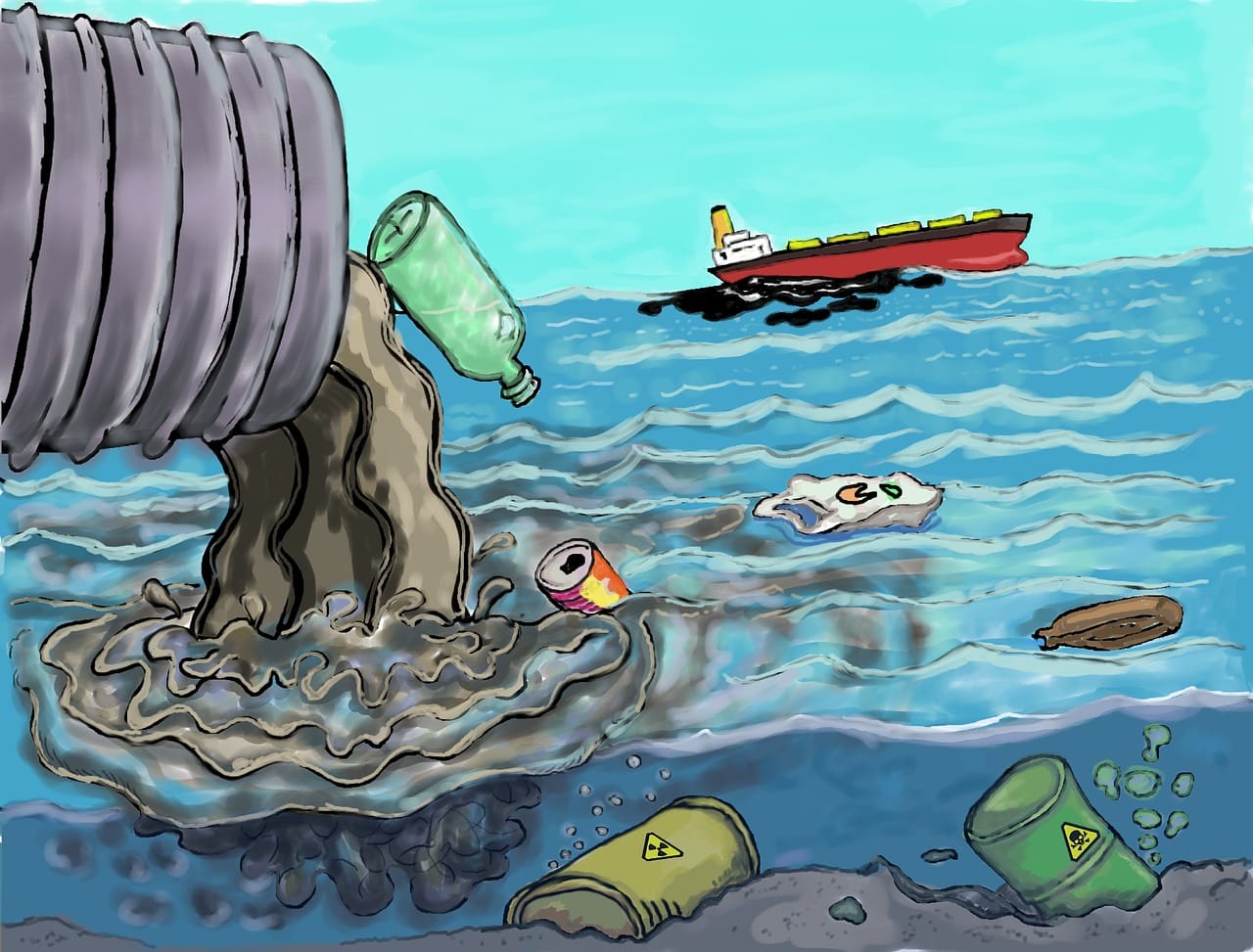The biggest effect of water pollution is how it impacts one’s health, including the lives of plants, fish, incrustations, and even mammals.
Not only does polluted water affect fish and organisms living in small freshwater bodies, but it also affects species living in the ocean and animals on land.
The Mississippi River, as one freshwater example, is a large river that is currently poisoned in the Gulf of Mexico, causing up to an 8,000 square-mile of a dead zone where aquatic life cannot survive. Dead zones also occur in many other parts of the world and are primarily caused by sewage discharge, as well as fertilizer runoff from lawns, farms, and golf courses. Fertilizer runoff causes algae to grow, which diminishes the oxygen in water through a process called eutrophication. When there is a lack of oxygen in the water, aquatic plants instantly die. The bacteria in the water then decomposes the plants to get access to oxygen, which then makes the body of water completely uninhabitable for any animals, even shellfish and crustaceans that become trapped and die due to a lack of oxygen.
Polluted Water Affects the Health of Ecosystems, Wildlife, and People
Once algae grow in polluted water, there is no stopping it from killing everything in the water, which also causes a process called the proliferation of the algae species, which first becomes toxic before it takes place. It impacts wildlife and human health. Proliferation is literally a toxin that poisons aquatic organisms and has been linked to killing thousands of sea creatures in the oceans too, even mammals like dolphins, sea lions, and turtles.
Another health hazard is also consuming shellfish, fish, or crab that has been caught in water containing toxic algae, which can cause people to become very ill or die.






